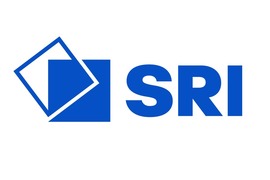
SRI International
SRI International is an independent, nonprofit research and development institute headquartered in Menlo Park, California, with a global reputation for creating transformative innovations that make people safer, healthier, and more productive. With deep roots in Silicon Valley, SRI is recognized as a world leader in applied research, advanced technology development, and commercialization of breakthrough innovations. The institute delivers basic and applied research, laboratory and advisory services, technology licensing, deployable systems, and venture creation opportunities, helping industries and governments solve some of the world’s most complex challenges. Over the decades, SRI’s pioneering work has fueled new industries and products that touch daily life, including the invention of the computer mouse, advancements in interactive computing, natural language processing (technology behind Apple’s Siri), medical ultrasound, and life-saving cancer therapies.
Founded in 1946 as the Stanford Research Institute and independent since 1970, SRI is a pioneer in creating and applying innovative solutions for governments, businesses, foundations, and other organizations worldwide.
Over the decades, SRI has expanded its capabilities through strategic acquisitions, including Sarnoff Corporation (formerly RCA Labs) in 1987 and the Palo Alto Research Center (PARC) in 2023.
The institute’s multidisciplinary teams drive breakthroughs across industries such as artificial intelligence, defense, biomedicine, education, energy, and space technologies.
KEY RESEARCH AREAS
Development of advanced AI models, natural language processing, robotics, and cognitive systems for commercial and government applications.
Next-generation technologies for national security, including cybersecurity, surveillance, advanced sensing, and mission support systems.
Biomedicine & Health Sciences
Cutting-edge drug discovery, molecular diagnostics, neuroscience research, and medical devices aimed at improving human health outcomes.
Education & Learning Sciences
Research into education policy, digital learning platforms, and technology-enabled solutions to improve student outcomes worldwide.
Computing & Information Technology
Innovations in high-performance computing, networking, software systems, and data analytics.
Energy & Environmental Sustainability
Renewable energy research, sustainable materials, and environmental monitoring technologies to address climate challenges.
Space & Advanced Engineering
Robotics, satellite systems, and space technologies designed to expand exploration and scientific discovery.
